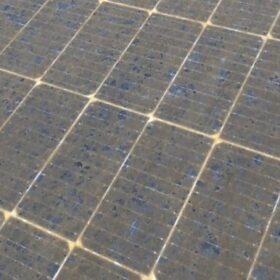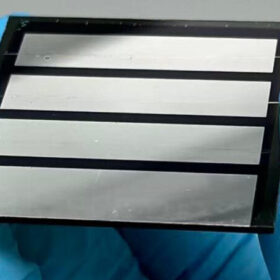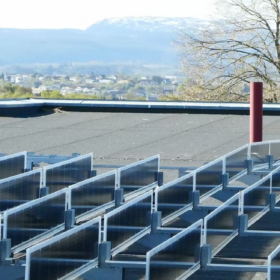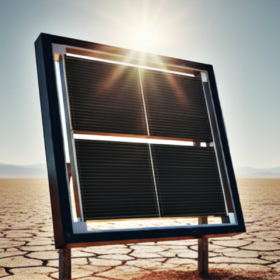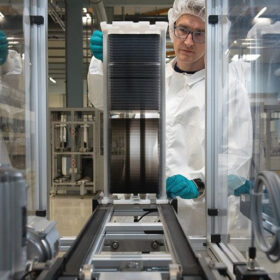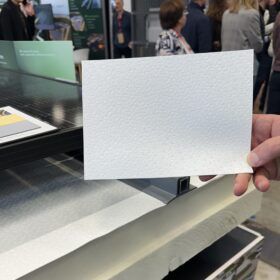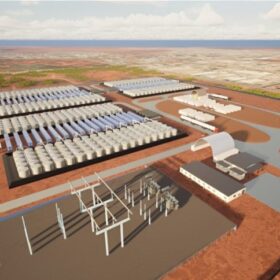New solar tracking strategies aim to maximise crop yield in agrivoltaics
Swedish researchers developed two novel single-axis solar tracking strategies that dynamically adjust panel tilt based on crop light requirements, balancing photosynthesis and energy production. One strategy prioritises daily light integral targets before shifting to energy capture, while the other uses the light-response curve to optimise photosynthesis, offering improved dual-use efficiency compared with conventional tracking methods.
Chemitek offers solution for drone-based cleaning of agrivoltaics
The Portuguese company said its new Drone AgroPV Cleaning Agent is scheduled for release in June. It has a safe formulation for crops and soil.
Norwegian firm introduces fire-resistant membrane for rooftop solar
Norwegian fire safety specialist Bridgehill has developed a fire-resistant roofing membrane designed for use beneath rooftop PV systems. The company says the product is intended to limit heat transfer and flame spread in commercial and industrial installations subject to strict fire safety and insurance requirements.
How to combine mechanised farming with agrivoltaics
An international study finds that successful agrivoltaic projects require farm-specific, holistic co-design that integrates solar layout with agricultural mechanisation from the earliest planning stages. Without proper alignment between machinery, crops, and solar systems, agrivoltaics risk major land loss, lower field efficiency, and higher operating costs, undermining farm profitability.
Scientists achieve 25.4% efficiency in perovskite solar cells with enhanced stability using multivalent ligands
Researchers have used multivalent amidinium ligands to boost perovskite solar cell efficiency to 25.4%, achieving over 95% stability after 1,100 hours at 85 C. The proposed approach enables controlled low-dimensional passivation layers, offering a practical route for durable, large-area perovskite devices.
Smart Commercial to roll out prefabricated vertical rooftop PV system
Smart Commercial Energy has unveiled a new prefabricated vertical rooftop solar system for the Australian market as part of a collaboration with Norwegian clean energy company Over Easy Solar.
Researchers achieve record perovskite solar module stability under light, heat, and UV stress
An international research team has developed a new two-dimensional perovskite interlayer based on a co-crystal engineering strategy for more robust perovskite films. It demonstrated improved performance in small area perovskite solar cells and, in a 48 cm2 module, contributed to retain 95% of initial efficiency after 5,000 h.
The impact of transparent conductive electrodes on perovskite-silicon tandem solar cell performance
An Oxford researcher has found that transparent conducting electrodes can reduce perovskite–silicon tandem solar cell efficiency by over 2%, with losses linked to electrical resistance, optical effects, and geometric trade-offs. Using a unified optical–electrical model, the scientist showed how careful optimisation of TCE stacks, coatings, and cell design is critical to closing the gap toward the 37%–38% efficiency frontier.
Indonesian 50 MW thin-film solar factory pilot aims for 1 GW per year
Pertamina Power has teamed up with HyET Solaris to validate the commercial feasibility of producing and marketing HyET’s lightweight and flexible solar products in Indonesia, by developing a 50 MW per year factory pilot.
Renolit showcases reflecting cool roof membrane for bifacial rooftop PV
Renolit France has introduced the Alkor Bright reflective membrane for bifacial rooftop PV systems, offering high solar reflectivity and durability for flat or pitched roofs. The membrane helps keep buildings cooler while boosting the energy output of bifacial solar modules.

